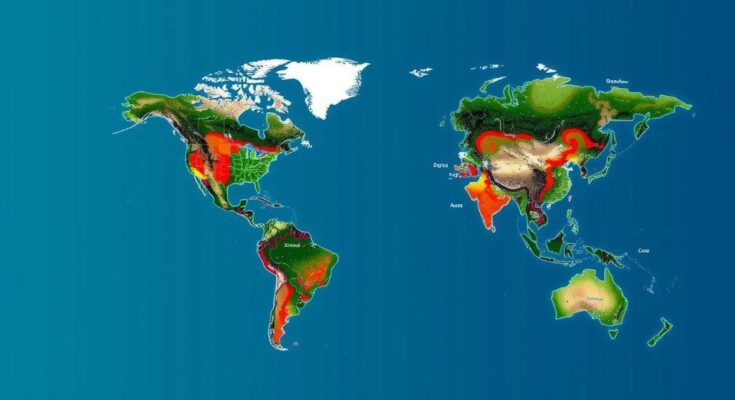This week’s climate news highlights critical developments, including the disappointing COP29 outcomes where developing nations criticized the $300 billion climate finance pledge as insufficient, alarming statistics on wildfire-related air pollution mortality, the rising internal displacement rates in Africa due to floods and conflict, and the connection between environmental crimes in the Amazon and U.S. financial systems.
This past week, significant climate events unfolded, including the controversial outcome of COP29, which drew widespread criticism from developing nations. They condemned the $300 billion climate finance pledge as inadequate, reflecting a longstanding struggle for substantial financial support. Concurrently, alarming findings were reported concerning air pollution from wildfires and the escalating displacement crisis in Africa due to environmental disasters and conflict. Further compounding the issue, a new study revealed that environmental crimes in the Amazon are often linked to financial operations in the United States, underscoring the global nature of these challenges.
The recent COP29 climate summit, held in Azerbaijan, highlighted the ongoing fracturing dialogue between developed and developing nations regarding climate finance. The failure to meet the pledged $100 billion target set over a decade ago has left many in the Global South feeling neglected and insulted. Meanwhile, the alarming statistics regarding air pollution from wildfires illustrate a disproportionate impact on low- and middle-income nations, primarily in Asia and Africa. Additionally, the displacement of millions due to floods and droughts signals a urgent need for both humanitarian assistance and comprehensive climate action. Furthermore, criminal activities contributing to environmental degradation in the Amazon further complicate international environmental governance.
In summary, the recent developments surrounding COP29 clearly indicate a growing divide in global climate negotiations, with developing nations asserting that they require far more than the promised $300 billion. Additionally, the alarming mortality rates linked to wildfire air pollution and the surge in displacement in Africa reveal urgent humanitarian needs exacerbated by climate change. Lastly, the financial dimensions of environmental crimes emphasize the necessity for greater accountability within global financial systems. Collectively, these issues underscore the critical need for robust, equitable climate action across all levels of governance.
Original Source: earth.org




